Fat is a key part of any healthy diet – whether it’s Paleo or not. While fats have gotten a bad rap in the past, new research continues to prove that low-fat diets pose a huge risk to your health.
A common concern about following a primal diet is the abundance of high fat foods on the menu.
From coconut oil and grass-fed butter to nuts, red meat, and wild game, the Paleo diet is anything but low-fat – and that’s a good thing. As an essential nutrient to cognitive function, hormone production, blood sugar balance, and nutrient absorption, leaving fat out of your diet has the potential to seriously damage your health.
Curious about ketosis?
Click here to get the FREE Easy Keto Guide to learn the right way to go keto!
Doesn’t Saturated Fat Cause Heart Disease?

The Seven Countries Study showed a correlation between countries that had high fat diets and a high rate of cardiovascular disease. But it failed to include any information about any of the countries that had a low risk of heart disease and ate high fat diets – or the countries that had low fat diets and high rates of cardiovascular disease. (1) For this reason, the “cherry picked” findings of the Seven Countries Study are considered inconclusive, and the results are still heavily debated and criticized. [tweet_quote] Trans fat and refined sugar is the real cause of heart disease — not saturated fat.[/tweet_quote]
Today, there’s still no evidence that saturated fat increases the risk of heart disease, as stated in a recent study published in the American Journal of Clinical Nutrition. (2) In fact, the inflammation caused by diets high in refined sugar, starches, and trans fats is now becoming recognized as the primary culprit in heart disease – not saturated fat. (3, 4)
Doesn’t Fat Make You Fat?

Unfortunately, all dietary fats got a bad name from the fat and obesity myth – including the health-promoting omega-3 and omega-6 essential fatty acids found nuts, seeds, fish, grass-fed meat, olive oil, and avocado. This is particularly devastating because omega-6’s play a key role in memory, growth, and development, while omega-3’s have been shown to reduce inflammation, lower LDL cholesterol, and promote weight loss. (5, 6, 7) Both of these essential fatty acids must be obtained from dietary sources because our bodies cannot produce them on their own.
While it’s becoming more accepted that fat isn’t the enemy, there’s still a lot of confusion around dietary fats based on previous theories. If you have any doubts of the importance of dietary fat, here are 7 major problems with low-fat diets that no one talks about.
1. Promotes a Decline in Cognitive Function

The best dietary sources of omega-3 essential fatty acids are grass-fed meats, hemp seeds, chia seeds, organic eggs, wild fish, algae, and flaxseed. Nuts such as walnuts and almonds also contain small amounts of omega-3’s.
2. Promotes Hormone Imbalance
Steroid hormones, such as estrogen and testosterone, are produced from cholesterol, which is found in fat. Therefore, a low-fat diet can contribute to hormone imbalance. (10) With a lack of fat in your diet, your body won’t be able to produce all of the hormones you need for optimal health.
Your hormones act as chemical messengers and work closely with one another to perform nearly every function in your body. This means that when one or two hormones aren’t being produced, the communication can get confused between all hormones. Your hormones aren’t just responsible for functions such as fertility, but for regulating your metabolism, sleep and wake cycle, and your mood – just to name a few.
3. Encourages You to Eat More Sugar

In addition, low-fat diets are typically high in carbohydrates such as grains. Whether they’re whole grains like brown rice, or refined grains such as white bread, both varieties break down into sugar. There’s nothing wrong with eating whole grains once in a while (although they’re not tolerated on a Paleo diet), but when you’re eating grains at every meal to compensate for a missing food group, you’re bound to consume more carbohydrates than your body actually needs.
4. Can Increase Your Consumption of Common Food Sensitivities
Glutenous grains, such as whole wheat, oats and spelt, are one of the main components of a low-fat diet, as are beans and legumes. The only problem is that these foods are common food sensitivities (which is why they’re not part of a Paleo diet). Now, not everyone is sensitive to these foods, but the vast majority of people report significant relief from digestive symptoms once they remove gluten-containing grains, beans, and legumes from their diet.
Gluten is a protein that’s difficult for some people to break down. And when consumed for prolonged periods of time, it can promote inflammation in the GI tract, which causes digestive symptoms and nutrient malabsorption. (11) [tweet_quote] Too much gluten can cause inflammation in the GI tract.[/tweet_quote]
As for gluten-free granola, waffles, cereal, or granola bars, many of these products are heavily processed and contain high amounts of refined sugar – which, as you now know, is more damaging to health than saturated fat.
All grains, beans, and legumes also contain a protein called lectins. Lectins have been linked to intestinal damage because they can be difficult for the body to break down and digest, especially if an enzyme deficiency is present or the digestive function is already weakened. (12)
5. Promotes Overeating and Carb Cravings

And have you ever heard the saying, “the more you eat it, the more you crave it”? This is especially true with carbs and sugar. Refined sugar can cause cravings for more sugar because it causes a rapid spike and crash in your blood sugar levels. When your blood sugar levels crash, you’re left feeling groggy and tired – and in need of a sugar fix to get your energy back up. This is a vicious cycle that not only creates constant cravings for sugar, but leads to metabolic syndromes such as type 2 diabetes. (13)
6. Can Promote Dull, Dry Skin
Fats are the building blocks of healthy skin cell membranes, and they also provide internal moisture and hydration to the skin. (14) This is why a common symptom of a fatty acid deficiency is dull, dry, or flaky skin. (15) As a natural anti-inflammatory, omega-3’s have also been linked to reducing the swelling and redness associated with acne. (16)
7. Prevents You from Absorbing Vitamins A, D, E and K
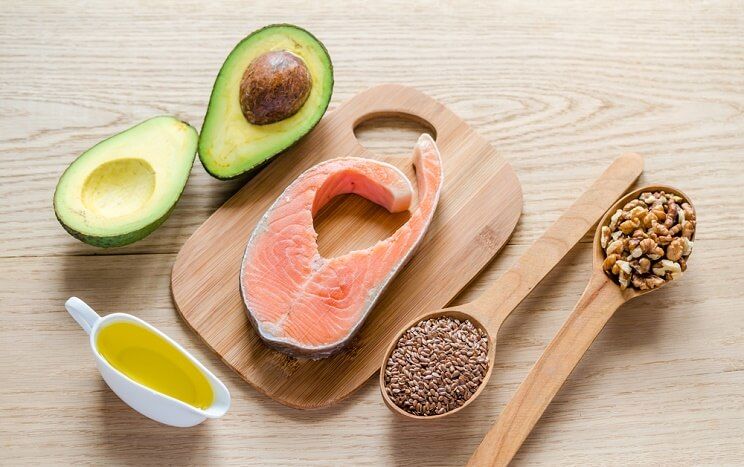
As you can see, fat is an integral part of any healthy diet – whether it’s Paleo or not. And while it isn’t necessary to avoid saturated fats, the best fats to regularly include in your diet are omega-3 and omega-6 essential fatty acids from quality food sources such as wild fish, wild game, olive oil, nuts, and seeds. These fats are essential for reducing inflammation, promoting a happy mood, balancing your hormones, and boosting your brain power. Needless to say, without a diet full of fat, it’s difficult to feel your best.
(Read This Next: The 10 Best Anti-Inflammatory Foods)


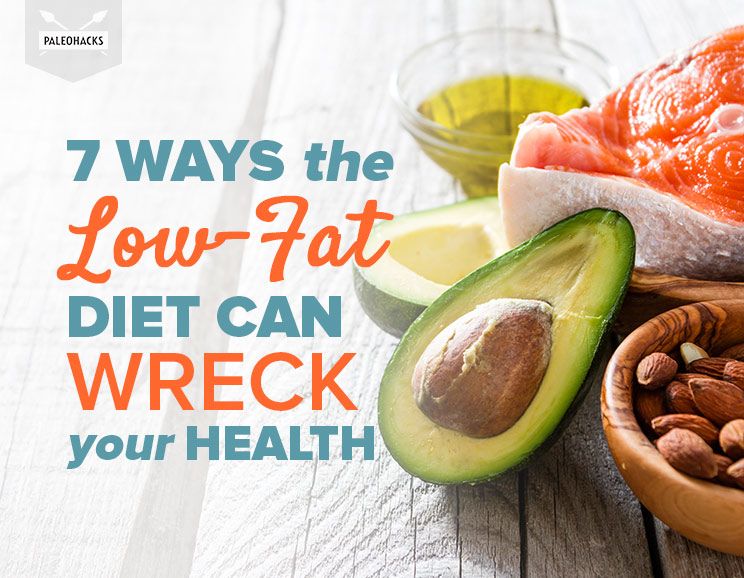
 Mahi Mahi with Mango Jalapeño Salsa Recipe
Mahi Mahi with Mango Jalapeño Salsa Recipe
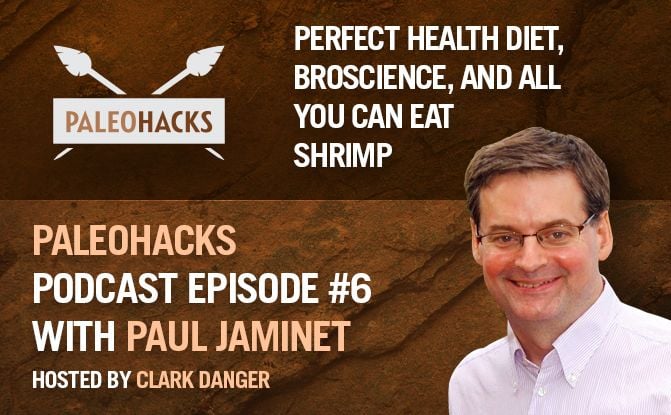

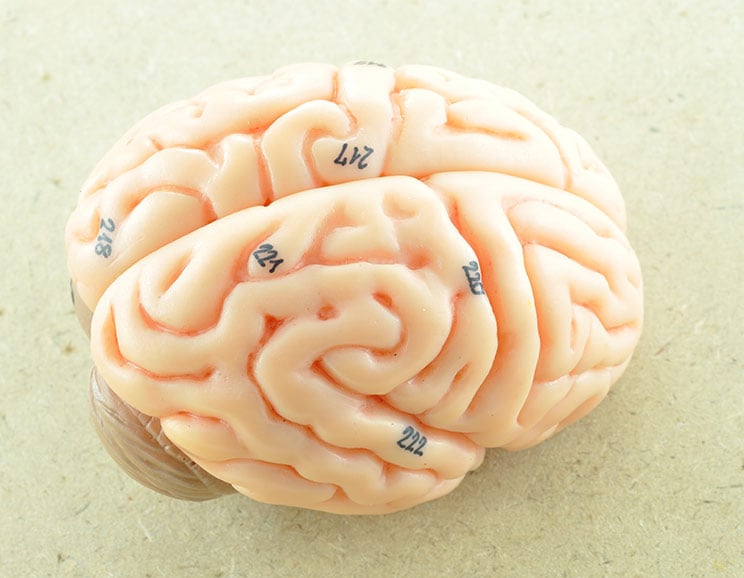
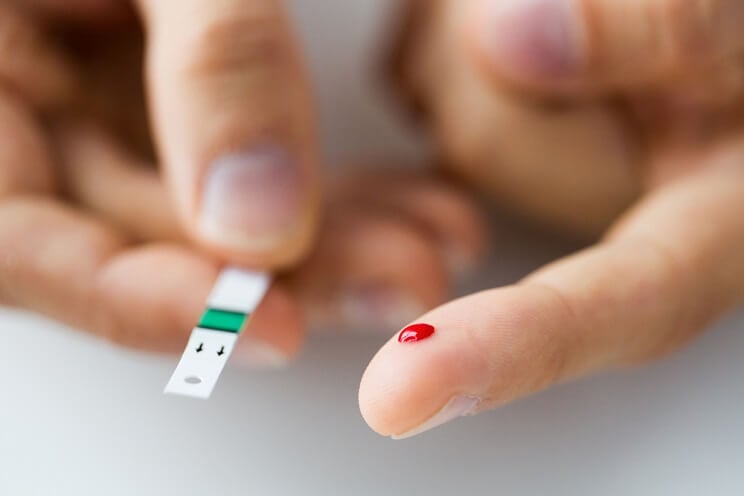


Show Comments